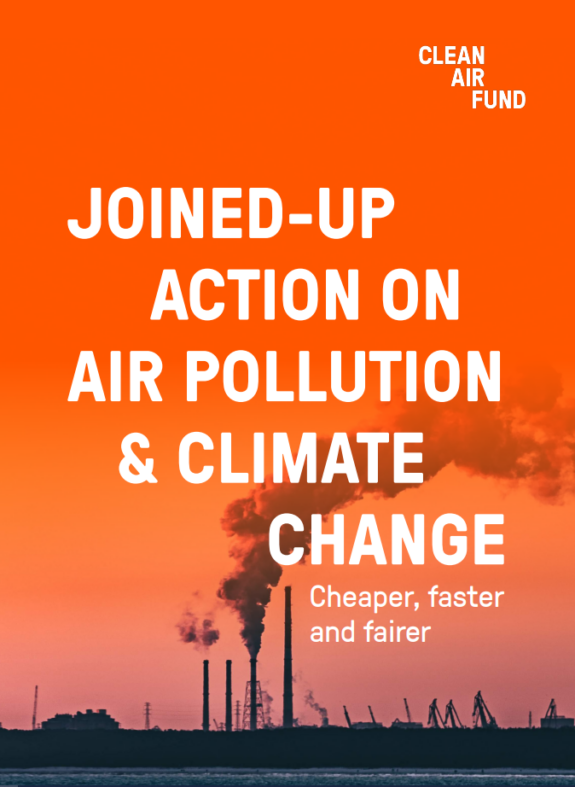Governments are missing obvious wins for health, economic efficiency and social justice by not prioritising air quality action alongside solutions to climate change. Our climate, air pollution and health challenges are interconnected in their causes and consequences, and therefore in their solutions.
We found that accounting for air pollution improvements into climate policies could make these policies up to 50% more effective. Capturing these benefits could accelerate progress in improving air quality and help catalyse the action needed to limit warming to 1.5°C.
Coordinated action can be a win-win in tackling climate change and air pollution together. We are calling on decision makers to urgently:
- Stop all new public investment into high carbon-emitting and air-polluting fossil fuels, and instead commit new funding to support a just transition to clean air solutions by increasing support to low- and middle-income countries and focusing funding on those communities that need it most.
- Make action on air pollution an explicit priority in climate action and sustainable development activities and reporting, to deliver higher returns for health, climate, equity, and the economy.
- Adopt an integrated approach including:
- A new Global Air Quality Convention: where global targets informed by WHO ambient air pollution guidelines can be agreed and reported against, shared regional approaches that cross geographical boundaries can be established, and global institutional mechanisms can be strengthened.
- Coordinated national action: national mechanisms are needed to support cross-sectoral coordination to embed health considerations and co-benefits across adaptation, mitigation, and sustainable development policy and programmes.
- Improved policy coherence and indicator alignment: across international climate, and sustainable development frameworks to better understand the linked challenges to capture multiple benefits.
